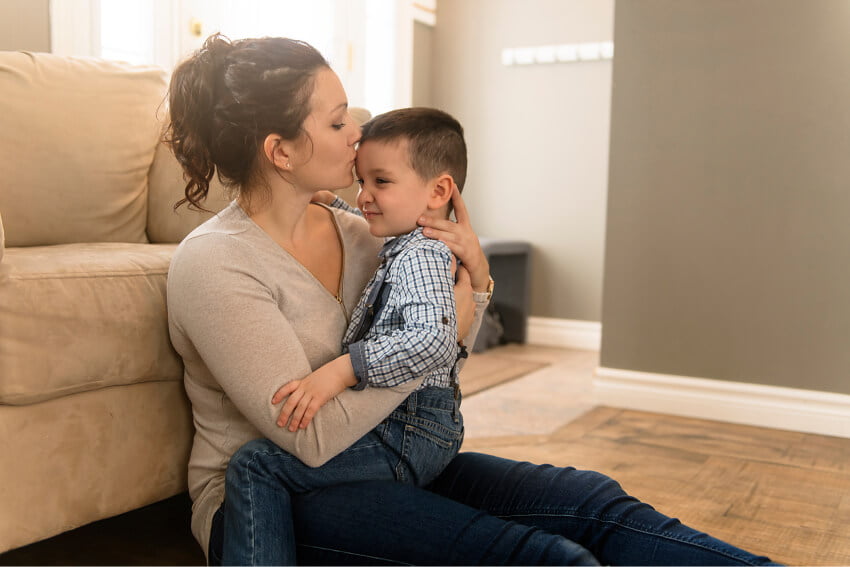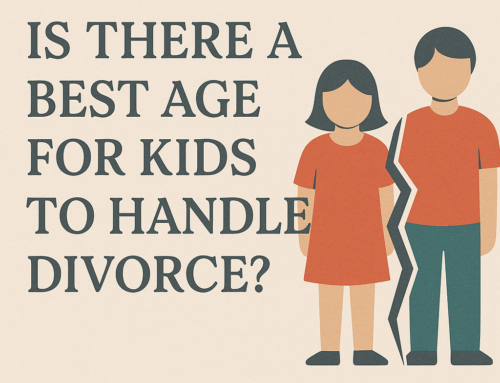
One of the most sensitive aspects of divorce is deciding on custody arrangements for your children. Navigating the process can be emotionally charged, but the goal is to ensure the best interests of your kids. Let’s explore different arrangements and offer guidance on how to determine what’s best for your children during and after divorce.
Mediator Scott Levin Shares Own Child Custody Experience
In my work over the last two decades as a divorce mediation attorney, well in excess of half of my clients have minor children and custody issues. Discussions with clients about custody and parenting issues is a daily occurrence in my practice and so I share the following overview and explanation to help you understand the basics. And while all of this information is great and relevant, the bottom line for child custody plans and discussions is for parents to really consider the children’s perspective.
Many parents begin the conversation insisting on a certain percentage of time for custody, and the right to make joint or separate decisions for the kids, it is my job to pull the parents back, and have a frank and open discussion about the parenting schedules they believe are best for the kids. How do you determine what’s best for children? That can’t be answered universally but that’s why mediation is such a powerful process for parents willing to delve into this difficult work because it offers each the time and space to have open and honest discussions with the help of someone like me who is experienced and skilled in facilitating such discussions and asking the right questions. I encourage you to contact me or leave your thoughts in the post below. These articles will hopefully become more of a two-way conversation in 2024 and beyond and I hope to hear from you.
Understanding the Types of Arrangements
Before diving into what’s best for your children, let’s review the primary types of custody arrangements:
- Physical Custody: This determines where your child will live. It can be sole (with one parent) or joint (shared between both parents).
- Legal Custody: Legal custody addresses decision-making authority for your child’s well-being, including choices about education, healthcare, and religion. It can also be sole or joint.
- Sole Custody: Sole custody means one parent has both physical and legal custody. The non-custodial parent may have visitation rights.
- Joint Custody: Joint custody, as the name suggests, involves shared responsibilities in both physical and legal custody. Parents work together to make decisions and provide for the child’s needs.
Determining the Best Custody Arrangement
So, how do you decide which custody arrangement is best for your children? Consider these key factors:
- Children’s Needs: Focus on your children’s needs, preferences, and routines. An arrangement that aligns with their school, activities, and social life can provide stability.
- Co-Parenting Communication: If you and your ex-spouse can maintain effective communication and cooperation, joint custody may be a suitable option.
- Parental Availability: Reflect on each parent’s work schedules, travel commitments, and living situations. Choose an arrangement that accommodates your child’s daily routine.
- Safety and Well-Being: Prioritize your child’s safety and well-being above all. If one parent can offer a safer, more stable environment, consider the best interests of your child.
- Age and Maturity: Keep your child’s age and maturity level in mind. Older children might have preferences, and their voices should be heard and considered.
- Emotional Adjustment: Pay attention to how your child is adjusting emotionally. A custody arrangement that minimizes disruption and emotional turmoil is usually preferred.
- Stability and Consistency: Ensure that the arrangement provides stability and consistency in your child’s life, which can be essential for their development.
The Importance of a Child-Centered Approach
It’s crucial to remember that arrangements should revolve around what’s best for your children, not what’s convenient for the parents. Your children’s emotional and physical well-being should always be the top priority. Keep the lines of communication open with your ex-spouse, and consider consulting a mediator or family counselor if you need assistance in finding a mutually agreeable solution.
Determining the best custody arrangement for your children is an integral part of the divorce process. By considering your children’s needs, preferences, and emotional well-being, you can work toward a custody arrangement that provides them with the love, support, and stability they need during this challenging time. In the end, a child-centered approach can help ensure the best interests of your children are at the forefront of your decision-making.
Begin the low-stress process with 5-Star rated Divorce Mediation Expert, Scott F. Levin, Esq, at San Diego Divorce Mediation. As a boutique family law firm providing mediation services throughout California for a wide range of family law issues, including divorce, custody, financial and support issues, we empower couples to resolve their divorce amicably. We guide couples through the divorce process in a confidential space without the couple ever having to the to court.
If you or someone you know has a family law dispute, don’t rush to court. Give us a call first. There’s a better way to resolve your problem and it’s never too late! You’ll have access to flexible options, including virtual meetings. Reach out today to schedule a free consultation or call Scott at (858) 255-1321. By choosing mediation, you can save time, money, and emotional stress, while maintaining control over the outcome of your divorce.



















